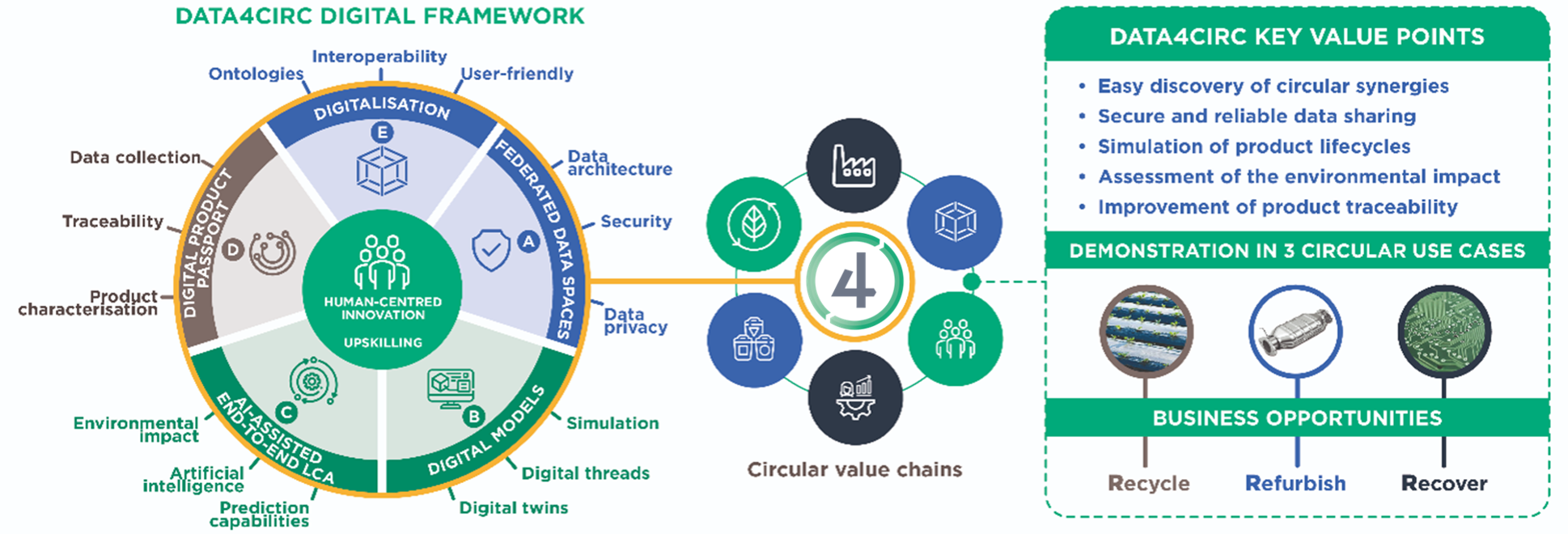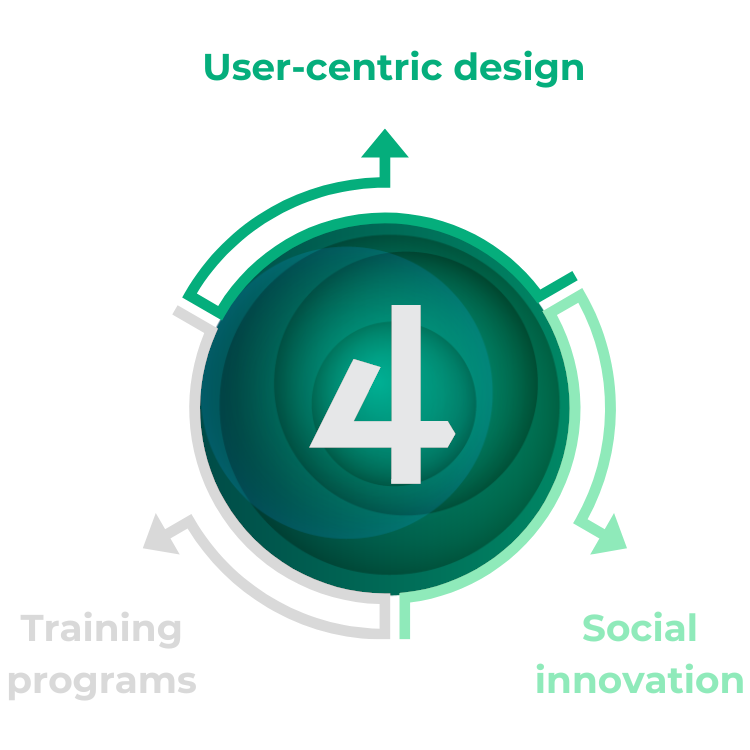Welcome to DATA4CIRC
DATA4CIRC is developing an innovative data-sharing framework to help European manufacturing prepare for a more sustainable future. Our mission is to improve access to the information factories need to efficiently and safely recover, recycle, and reuse materials, and move towards a circular economy.
The Challenge
The European Union has set a target of doubling circular material use by 2030. A major barrier to increasing circularity is a lack of data about the materials contained in manufactured goods. Even when data does exist, manufacturers might be unable to access it, for example, due to restrictions protecting Intellectual Property. Additionally, where potential solutions to this challenge do exist, a lack of standardisation / interoperability and a deficit in the necessary training for end-users has prevented wide-spread adoption.
Our Approach
Federated Data Spaces: Secure platforms for safe data sharing among companies.
Digital Models: Virtual representations of manufacturing processes and products to enhance environmental impact assessment.
AI-Assisted End-to-End Lifecycle Analysis: An AI-powered tool to evaluate the environmental impact of products from start to finish.
Digital Product Passport (DPP): A digital ID for products, tracking their lifecycle for easier recycling and reuse.
Digitalisation: together with an appropriate level of skills and training for end-users, digitalisation is vital for ensuring interoperability with other solutions and unlocking the potential of the circular economy.

DATA4CIRC puts people at the heart of circularity
Real-World Impact:
Our solutions are being tested in three key manufacturing sectors: plastics, electronics, and automotive, demonstrating their effectiveness in creating sustainable and circular value chains.
Join us on our journey to a greener, smarter, and more circular future in manufacturing!

User-centric design:
Our solutions are designed with the end-user in mind, ensuring they are easy to use and based on existing standards for maximum adoption.
Social innovation:
We prioritize human involvement through co-creation and co-validation activities, addressing the needs and expectations of all.
Training programs:
We offer upskilling and reskilling programs to help the manufacturing workforce adapt to new digital tools.
